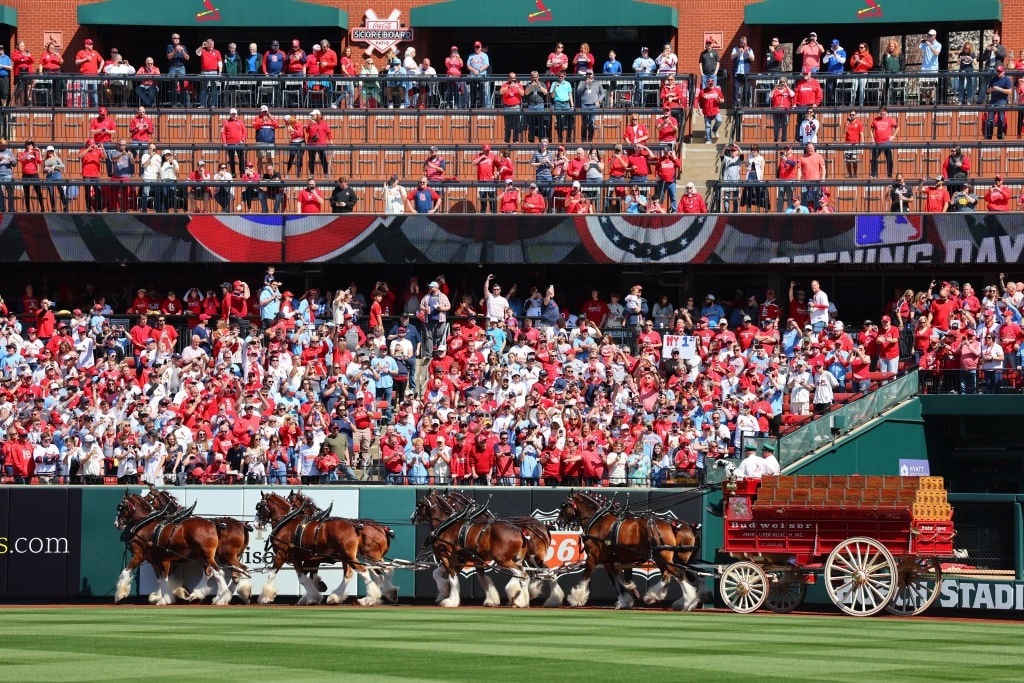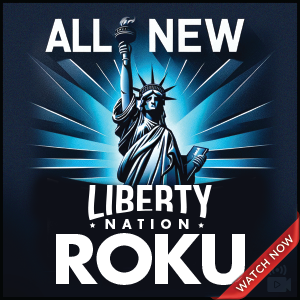You know it must be bad when they’re bringing out the Clydesdales. Anheuser-Busch, still reeling from a damaging consumer boycott of its Bud Light brand sparked by its promotional ties to a transgender social media influencer, is desperately seeking to reconnect with the regular Americans it alienated with its woke posturing via a Super Bowl advertising blitz. But will nostalgic imagery of majestic horses and politics-free commercials be enough to convince angry ex-customers that the company has learned its lesson?
“As one of the game’s longest-running advertisers, Anheuser-Busch will return to Super Bowl LVIII with two and a half minutes of national advertising time, making Anheuser-Busch this year’s biggest Super Bowl advertiser within the beer and alcohol beverage industry,” a January 25 statement from the once-iconic American brewery now owned by a Belgian multinational declared. “Budweiser, Michelob ULTRA, and Bud Light will be laser-focused on delivering what people expect and look forward to from the country’s biggest beer brands during this occasion.”
That last sentence sure sounds like a chastened corporate goliath eager to stir the echoes of the red, white, and blue heyday of Budweiser’s past.
Bud Light and the Big Game Pivot

(Photo by Dilip Vishwanat/MLB Photos via Getty Images)
“Budweiser and the iconic Clydesdales are back with a timeless message of resilience, determination, and coming together over a beer,” the statement continues. “The spot is rooted in the scenes, storylines, and on-screen magic that shaped the brand’s legacy as one of the top advertisers of all time. The Budweiser Clydesdales will also play a pivotal role on the ground in Las Vegas, delighting consumers and representing Anheuser-Busch and Budweiser’s longstanding heritage.”
Humor is the approach sought to shake off the tarnish covering Bud Light bottles and cans. “The brand is back with a humorous spot introducing a new character to the Bud Light universe and some familiar faces from the platforms the brand has been passionate about for years,” the company says of its Super Bowl ad for Dylan Mulvaney’s favorite beer. Don’t expect the trans TikToker to make an appearance.
“I certainly think that Budweiser through Bud Light is trying to bring back the old magic that they had where Bud Light was there to appeal to everyone,” Raphael Thomadsen, a marketing professor at Washington University, told The St. Louis Post-Dispatch. “They’re trying to recapture that feeling with older, familiar music and popular people.”
 Time will tell whether American consumers buy it. There are numerous reasons not to.
Time will tell whether American consumers buy it. There are numerous reasons not to.
Can You Say Bud Light in Chinese?
We’re not talking about a St. Louis brewing institution anymore. AB InBev is a monolith of global proportions. Super Bowl Sunday aside, the corporation’s eyes appear mostly focused on China these days.
In February 2023, AB InBev proudly noted that CEO Michel Doukeris “flew to Beijing” as “an early visitor to meet China’s central government after the lifting of [coronavirus] pandemic restrictions” in the communist nation.
“China is the largest beer industry globally. China is such an important market, one of the top markets for us globally,” Doukeris was quoted as saying in a company press release. “It was only natural to me to come on in… to see how things are and have the opportunity to talk to the team. And I’m very glad to see how consumption is returning very fast.”
The release emphasized AB InBev’s deep commitment to doing business in China:
“Mr. Doukeris emphasized China’s importance to AB InBev, noting that ‘one beer in four globally is consumed in China.’ Since entering China in 1984, AB InBev has laid down significant roots in the country and invested more than 30B RMB [Chinese currency, about $4.24 billion in US currency]…. AB InBev brews beer at approximately 30 breweries across China and provides a diverse portfolio of more than 50 brands. AB InBev has also spared no efforts to fulfill its commitments to the Chinese market, while continually increasing its investment here.”
Bud Light may be swearing off transgenderism, but the charity arm of its parent company is heavily plugged into a globalist agenda. AB In Bev Foundation Executive Director Sam Stephens “serves on multiple committees and task forces for the United Nations and World Health Organization, frequently speaks at events on sustainable development topics, and is actively involved in global groups such as the World Economic Forum,” his official corporate bio reads.
‘Brands Drive Outcomes Through Mass Behavioral Change’
Here’s why that’s important: Stephens was a featured speaker at a 2021 Milken Institute Global Conference titled “Charting a New Course for Global Leaders.”
“[P]eople increasingly want companies to help solve social challenges where governments are failing,” a description of the event at the Milken Institute’s website states. “[T]he Milken Institute’s Listening Project examined the post-pandemic priority issues of global citizenry to identify the types of business leaders we need to drive growth and foster a more just world.”
As you can see, it was never just about Dylan Mulvaney. AB InBev is ideologically committed to a belief that powerful corporations can enact social change.
Myriam Sidibe is on the Board of Advisors at the AB InBev Foundation. The Harvard Kennedy School research fellow “is one of the world’s leading experts on brands that drive health outcomes through mass behavioral change,” her foundation bio proclaims.
How spooky is that?
The bio focuses on Sidibe’s efforts to promote handwashing in Africa. Sounds benign enough. Left unnoted is that she also serves on the Board of Directors at MSI Reproductive Choices. The organization, formerly known as Marie Stopes International, is one of the largest NGOs promoting and performing abortions throughout the world.
Sidibe founded and runs an organization called Brands on a Mission. AB InBev is a listed partner. “We build the foundation for transformative business models by helping brands develop their purpose and social mission,” Brands on a Mission asserts on its website.
“Purpose-driven marketing, when done right, can create social impact that can improve millions of lives while simultaneously improving company competitiveness,” Harvard Business School Professor Michael E. Porter says in a featured quote on the site. “How Brands Can Help Reduce Inequality” and “How Brands Can Join the Fight Against the Climate Crisis” are featured articles on the site.
But, gee, look at that handsome pack of horses. Oh, and look, it’s snowing. And here comes the jingle.
“If they can keep people’s attention in cool and fun ways, they can contribute to the brand being seen as cool and fun,” Washington University marking prof Thomadsen says of the Anheuser-Busch Super Bowl ad push. They may not be shoving transgenderism in the faces of beer drinkers for the moment, but don’t let the old-school commercials fool you. This is not your grandfather’s Budweiser.

